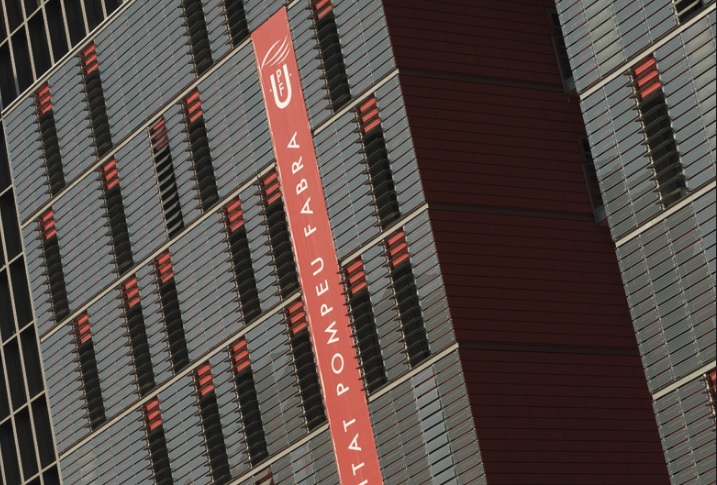Pompeu Fabra improves its position in the QS global ranking
UPF, which stands out for the number of citations and percentage of international teaching staff, moves up from 298th to 285th position, and ranks 120th in Europe.

Pompeu Fabra University has risen thirteen places compared to the previous year in the QS World University Rankings 2020, which includes the 1000 best universities in the world. It moves up from 298th to 285th position, and is one of four of the State’s 27 institutions included in the list to improve their position.
According to the sixteenth edition of this ranking, produced by the international higher education consultant QS Quacquarelli Symonds, UPF ranks sixth in Spain (last year it ranked eighth) and 120th in Europe (last year it came 128th).
UPF tops the indicator in Spain for the number of citations received by its researchers’ articles
As in the previous edition, Pompeu Fabra University tops the Indicator in Spain for the number of citations received by its researchers’ articles (ranked 178th in the overall ranking). It is also noteworthy for the percentage of international teaching staff (ranked 263rd, the first public Spanish university behind Ramon Llull University).
Three US universities hold the top positions in the ranking: Massachusetts Institute of Technology (for the eighth consecutive year), Stanford University, and Harvard University, followed by Oxford University, which is the first European institution to appear. At national level, the podium is completed by the University of Barcelona, the Autonomous University of Barcelona, and the Autonomous University of Madrid.
Ranking indicators and UPF scores
Out of a maximum of 100 points, UPF has obtained an average of 35, among the six indicators that make up the ranking: academic reputation (31.6), number of citations (55.6), ratio between teachers and students (17.3), reputation of employers (30.9), percentage of international teaching staff (66.3), and percentage of international students (25.8).
QS gives a different weight to each of the indicators: academic reputation (40%) is obtained from a survey completed by academics, who evaluate the best universities in their field; the number of citations (20%) measures the average number of citations received by articles by the lecturers of an institution and serve to assess the quality and impact of the scientific work carried out by the universities.
The remaining indicators are the reputation of employers, (10%) obtained from a survey, this time addressing companies from all over the world that evaluate the university institutions that best train professionals; the percentage of international teaching staff over total teaching staff (5%), and the percentage of international students over total students (5%).
